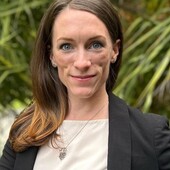
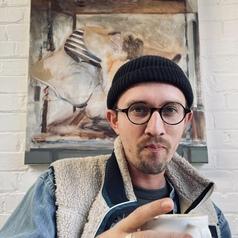
Harvey Wiltshire
Teaching Fellow in Early Modern Literature, Shakespeare, and Inclusive Pedagogy, Royal Holloway University of London
Harvey Wiltshire is Teaching Fellow in Early Modern Literature, Shakespeare, and Inclusive Pedagogy, in the Department of English at Royal Holloway, University of London. His research focuses on the significance of blood in Shakespeare’s poetry and drama, and explores the discovery of cardiovascular circulation by William Harvey. He's published on trauma theory and Shakespeare’s narrative poems, Kingship in 'Richard III', tear imagery in the poetry of John Donne, and has recently co-edited a collection of essays exploring the impact of the Coronavirus pandemic on the humanities, 'Lockdown Cultures: The Arts and Humanities in the Year of the Pandemic, 2020-21' (UCL Press, 2022).
Less ![]()

Hasan Khatib
Associate Chair and Professor of Genetics and Epigenetics, University of Wisconsin-Madison
Hasan Khatib is a professor of genetics and epigenetics. He earned his BS in Biology, MS in Human Genetics, and Ph.D.in Genetics from the Hebrew University of Jerusalem. Afterward, he worked in the Department of Genetics at the Hebrew University as a post-doctoral fellow and as a research scientist.
Dr. Khatib currently has over 100 peer-reviewed publications in the areas of embryonic development, male fertility, production traits, epigenetics, and nutritional epigenetics. His papers have appeared in the BMC Genomics, PloS one, Science, Genome Research, Animal Genetics, Journal of Dairy Science, Journal of Animal Science, Mammalian Genome, Epigenetics and other journals.
His research focuses on understanding the contributions of epigenetics to production, reproduction, and health traits. More specifically, his research examines the transgenerational epigenetic effects of paternal and maternal nutrition on phenotypes of the next generations in livestock. His group recently demonstrated that DNA methylation patterns in the sperm were affected by a paternal diet and were transgenerationally inherited by subsequent generations in sheep. He is also interested in identifying epigenetic markers as predictors of embryo development and fertility using non-invasive methods. Research methods used in his lab include embryo production, transcriptomics, whole-genome bisulfite sequencing, cell culture, gene editing, and epigenome editing. Dr. Khatib is the editor of the books “Livestock Epigenetics” and “Molecular and Quantitative Animal Genetics.
Less ![]()
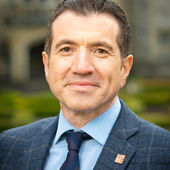
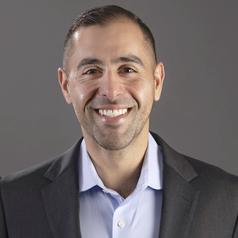
Hassan S Dashti
Instructor in Anaesthesia Medicine, Harvard University
Hassan Dashti is an Instructor in anaesthesia medicine at Harvard University. He is also an assistant investigator at Mass General Research Institute in the Critical Care and Pain Medicine unit. His research areas include circadian rhythms, clinical trials, genetic epidemiology, nutrition, parenteral nutrition, perioperative care, precision medicine, sleep and wearable technology.
Less ![]()
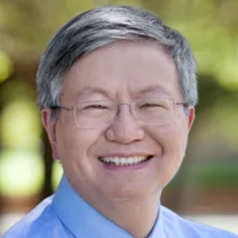
Hau L. Lee
Professor of Operations, Information & Technology, Stanford University
Hau L. Lee is the Thoma Professor of Operations, Information & Technology at the Stanford Graduate School of Business and Co-Director of the Value Chain Innovation Initiative. His research focuses on value chain innovations to develop new business models and networks for value creation through effective management of the value chain. Professor Lee's works spans both global enterprises in developed and emerging countries, as well as entrepreneurs in developing economies. His areas of specialization include global value chain innovations, supply chain management, global logistics, inventory modeling, and environmental and social responsibility.
Professor Lee has published widely in journals such as Management Science, Operations Research, Harvard Business Review, Sloan Management Review, Supply Chain Management Review, IIE Transactions, and Interfaces, etc. He has served on the editorial boards of many international journals, such as Operations Research, Manufacturing and Service Operations Management, IIE Transactions, Supply Chain Management Review, Sloan Management Review, and the Journal of Production and Operations Management. From 1997-2003, he was the Editor-in-Chief of Management Science.
Professor Lee was elected to the National Academy of Engineering in 2010. He received the Harold Lardner Prize for International Distinction in Operations Research, Canadian Operations Research Society, 2003. He was elected a Fellow of Manufacturing and Service Operations Management, INFORMS, 2001; Production and Operations Management Society, 2005; and INFORMS, 2005. In 2006, he was President of the Production and Operations Management Society. Professor Lee obtained his B.Soc.Sc. degree in Economics and Statistics from the University of Hong Kong in 1974, his M.Sc. degree in Operational Research from the London School of Economics in 1975, and his MS and PhD degrees in Operations Research from the Wharton School of the University of Pennsylvania in 1983.
Less ![]()

Havovi Chichger
Associate professor, Anglia Ruskin University
Havovi Chichger is an Associate Professor in Biomedical Science at Anglia Ruskin University. She is Deputy Head of the School of Life Sciences with responsibility for research and innovation. As a leading vascular biology researcher, Havovi has presented her studies in a range of national and international publications and conferences. She has been on the editorial board for the American Journal of Physiology and Physiology News publications. She is member of the Athena Swan committee.
Less ![]()

Hayley Baker
Assistant Professor, School of Kinesiology, Western University
Hayley Baker’s scholarly interests include leadership, gender, and sport. Her research has focused on addressing the underrepresentation of women coaches at Canadian universities by exploring normalized institutional practices and processes. More recently, she has examined the implementation of gender-based violence policies in universities and the institutional responses to gender-based violence within Canadian university sport.
Less ![]()
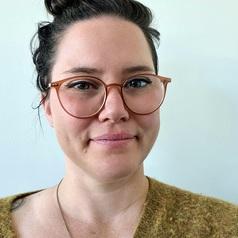
Hayley Boxall
Research Fellow, Australian National University
Dr Hayley Boxall is a Research Fellow with the Australian National University who has been undertaking research on domestic and family violence and sexual violence for over 10 years. She has published extensively on these topics, with a primary focus on pathways/trajectories into DFV offending and intimate partner femicide, offending and reoffending patterns of DFV perpetrators, and DFV desistance processes. Prior to joining the ANU, Hayley was the Manager of the Australian Institute of Criminology’s Violence against Women and Children Research Program.
Less ![]()

Hayley Cawthra
Specialist Scientist, Council for Geoscience
Hayley Cawthra is a South African marine geologist who is employed as a specialist scientist at the Council for Geoscience, where she coordinates the offshore mapping programme, and a research associate in the Nelson Mandela University African Centre for Coastal Palaeoscience. Her research interests include Pleistocene sea level, hydroacoustic mapping of continental shelves, reconstructing now-submerged and extinct landscapes, and human use of ancient coasts.
Less ![]()
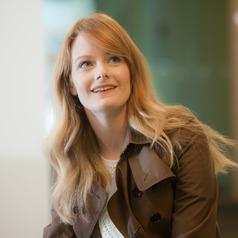
Hayley Cocker
Senior Lecturer in Marketing, Lancaster University
Hayley is a Senior Lecturer in Marketing at Lancaster University. Her research focuses on the social and cultural aspects of consumption, with a particular interest in influencer culture and celebrity culture. Her research has looked at the production and consumption of celebrities and celebrity brands, the popularity and appeal of YouTube celebrities, the fan communities that surround social media stars, and consumers' responses to social media endorsements.
Less ![]()

Hayley Gorton
Senior lecturer in Pharmacoepidemiology, Aston University
Dr Gorton’s research is focused on mental health care in pharmacy; and big data epidemiology research. Dr Gorton is an active member of the Royal Pharmaceutical Society (RPS).
Less ![]()

Hayley Green
Senior Lecturer - Forensic Anthropology, Western Sydney University
Dr Hayley Green is a forensic anthropologist at Western Sydney University. She obtained a Bachelor of Science from the University of New South Wales and a BSc (Anatomy and Histology) from the University of Sydney. She did her PhD at the University of New South Wales, with a focus on modern cranial shape differences around the world. She has been particularly interested in investigating the comparability of Northern Hemisphere ‘time since death’ identification methods in Australia and the impact of climate on decay and identification of bodies. She is working with the Australian Facility for Taphonomic Experimental Research (AFTER) at University of Technology Sydney to develop time since death methods which are applicable to the specific characteristics an Australian climate. Hayley is studying how bodies decompose in different microclimates and the resultant weathering patterns that can be seen on bones.
She is also investigating the use of multidisciplinary techniques to find and identify remains. This includes using analytical chemistry to identify potential chemical signatures in bone samples, which may be able to determine time since death. This has the potential to allow for identification of individuals in situations where there are multiple skeletons that may have become mixed. As well as observing physical changes to the body as it decomposes, Dr Green undertakes multidisciplinary research with collaborators in the School of Science to investigate the impact of the environment on decomposition and in turn, how the body leaves it mark on the environment.
Less ![]()
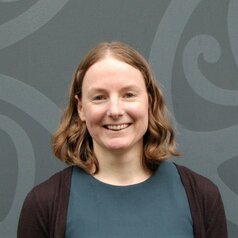
Hayley Guiney
Research Fellow at the Dunedin Multidisciplinary Health and Development Research Unit, University of Otago
I joined the Dunedin Study team as a Research Fellow in 2020 after several years working as a public health researcher for government agencies and NGOs. In 2019, I completed my PhD in psychology, which focused on everyday interventions that might help to protect our brain health as we age.
Less ![]()
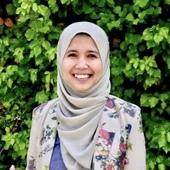
Hayu Rahmitasari
Education & Culture Editor
Hayu merupakan editor dengan latar belakang jurnalistik, pendidikan dan penulisan kreatif. Sebelumnya berkarir sebagai dosen di bidang media dan komunikasi selama 7 tahun dan bekerja sebagai penulis dan editor untuk media di Indonesia dan Swedia. Lulusan S1 Ilmu Komunikasi dari Universitas Gadjah Mada dan S2 Komunikasi Massa dari Edith Cowan University, Australia, ini memiliki sertifikat kepenulisan dari University of Malmö, Dalarna University dan Linnaeus University, Swedia.
Less ![]()

Hazel Cameron
Honorary Senior Research Fellow, University of Stirling
Dr Hazel Cameron is the director of Pearl International Insights, a leading academic consultancy and research institute based in Scotland, and honorary senior research fellow in the Faculty of Social Sciences, University of Stirling. She is a former director of the Centre for Peace and Conflict Studies and lecturer within the School of International Relations, University of St Andrews. She was awarded her PhD at the University of Liverpool in December 2009; her thesis was titled External Institutional Bystanders to Genocide: Case Study Rwanda. She has written a monograph of her doctoral research titled Britain's Hidden Role in the Rwandan Genocide, which is a systematic and detailed socio-legal analysis of the policies of the British government towards civil unrest in Rwanda throughout the 1990s, culminating in genocide in 1994. It was shortlisted for the Socio-Legal Studies Association Hart Book Prize 2014. Her ongoing research interests are state crime including genocide and crimes against humanity, and bystander state responsibility for or complicity in such international crimes, with a particular geographical focus on sub-Saharan Africa. For the past twelve years, Dr Cameron has been engaged in extensive research into the mass state sponsored atrocities of Gukurahundi in the early post-colonial years of Zimbabwe.
Less ![]()
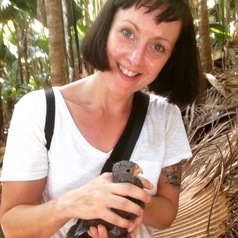
Hazel Jackson
Postdoctoral Research Associate, University of Kent
I am an evolutionary biologist and wildlife conservationist based at the Durrell Institute of Conservation and Ecology (DICE) at the University of Kent. I completed my PhD on the evolutionary history, ancestral origins and population genetics of invasive ring-necked parakeets. I previously worked as a postdoctoral research assistant for the Seychelles Islands Foundation to determine the evolutionary distinctiveness of the Seychelles black parrot.
I am a part of Dr Jim Groombridge's genetic research group, which focuses on conservation genetics, ecological and evolutionary studies. My research interests centre around evolutionary conservation genetics, phylogenetics and biogeography in both invasive and endemic species. I use molecular DNA techniques to understand fundamental eco-evolutionary questions in invasion biology and species conservation.
My research includes evolutionary phylogenetics and biogeography of globally invasive species across large continental systems, such as the ring-necked parakeet. I am also interested in the population genetics of small, endemic island species, in particular those in the Indian Ocean islands. I have studied the endangered Seychelles black parrot and Aldabran fody. I have also worked with a number of extinct parrots, successfully extracting DNA to resolve their taxonomic affinities.
Less ![]()
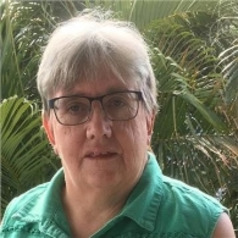
Hazel Jones
Learning and Teaching Consultant (Curriculum), Griffith University
Hazel Jones is a Learning & Teaching Consultant (Curriculum) in Griffith Business School, Griffith University. She is a member of the Australasian Society for Computers in Learning in Tertiary Education (ASCILITE) Executive where she leads the Special Interest Groups portfolio, co-leads the 'Contextualising Horizon' Project. and co-leads the Learning Analytics SIG.
Less ![]()
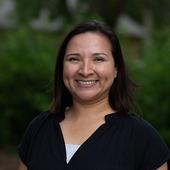
Hazel Velasco Palacios
Ph.D. Candidate in Rural Sociology & Women's, Gender and Sexuality Studies, Penn State
Less ![]()

Hazem Zohny
Research Fellow in Practical Ethics, University of Oxford
I’m a research fellow at Oxford University’s Uehiro Centre for Practical Ethics. My research interests cover a wide terrain in ethics, from issues of distributive justice to human enhancement technologies and the nature of well-being. I received my PhD from The University of Otago. Previously, I worked as a journalist in Egypt where I grew up.
Less ![]()
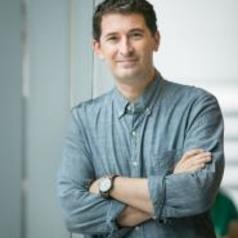
Heath Brown
Heath Brown is an assistant professor of public policy at the John Jay College of Criminal Justice and the Graduate Center, City University of New York. He has worked at the U.S. Congressional Budget Office as a Research Fellow, at the American Bus Association as a Policy Assistant, and at the Council of Graduate Schools as Research Director.
He is the author of three books, including Lobbying the New President, Tea Party Divided, and Pay-to-Play Politics: How Money Defines the American Democracy, available in April, 2016 (http://www.abc-clio.com/ABC-CLIOCorporate/product.aspx?pc=A5175C).
In addition to his research, Brown is Reviews Editor for Interest Groups & Advocacy (http://www.palgrave-journals.com/iga/index.html) and hosts a podcast called New Books in Political Science (www.newbooksinpoliticalscience.com), where he interviews new authors about their political science publications. He is also an expert contributor to The Hill.
Brown currently a co-leader of the New York City Chapter of the Scholar Strategy Network.
Less ![]()
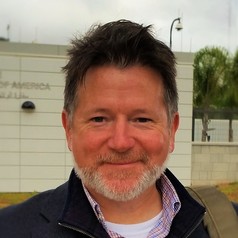
Heath J. Prince
Research Scientist in Public Policy, University of Texas at Austin
Quantitative and qualitative public policy analyst, evaluator and researcher in economic development and human development fields with over 15 years of pro-poor policy, evaluation and research experience. Adjunct lecturer and Teaching Assistant (2009-2011) in sustainable international development and poverty measurement. Doctorate in Social Policy, Brandeis University; Master of Public Affairs, LBJ School, University of Texas, Austin; Bachelor of Arts, International Affairs, University of Colorado, Boulder. Collaborating researcher for United Nations Research Institute for Social Development. Non-resident adviser on monitoring and evaluation Center for Global Development and Sustainability, Heller School for Social Policy and Management, Brandeis University. Developer of financial resources through donor research, grant proposal writing, and direct requests to foundations.
Less ![]()

Heath McDonald
Dean of Economics, Finance and Marketing and Professor of Marketing, RMIT University
Heath McDonald is Professor of Marketing and Dean of Economics, finance & Marketing at RMIT University. Heath has a background in consumer research and product management, working mainly with "high involvement" products including sport, charities and the arts. His most recent work focuses on fan development and season ticket holder management. This work has been published in journals including the European Journal of Marketing, Journal of Sport Management, International Journal of Hospitality Management and the Journal of Business Research. He recently co-authored the book "Sport Consumer Behaviour" published by Routledge.
Recent industry research partners include the Australian Football League (AFL), the Federal Department of the Environment, Water, Heritage and Arts, the Melbourne Victory, Melbourne Rebels, Cricket Australia and Movember. Having worked with the AFL for many years to improve member retention and satisfaction, Dr. McDonald is currently undertaking an ARC funded project to examine the impact of marketing tactics on the fan development process. this project has a particular emphasis on determining how best to build lasting support for the two new AFL teams in Gold Coast and Western Sydney. He was the consumer research co-ordinator for the committee organising the successful $550 million re-development of Adelaide Oval, assisted the Federal Government to improve public engagement with Australia's heritage, and works with a number of charity organisations to increase donor engagement.
Less ![]()

Heath Pardoe
Associate professor, Florey Institute of Neuroscience and Mental Health
Heath Pardoe is an Associate Professor and Neuroimaging Theme Lead at the Florey Institute of Neuroscience and Mental Health, Stream Lead for Science Operations in the Australian Epilepsy Project and Director of the Florey Node of the National Imaging Facility. He holds honorary positions at New York University Grossman School of Medicine, Monash University and the University of Melbourne.
Dr Pardoe completed his PhD in 2005 at the University of Western Australia. He underwent postdoctoral training at the Florey (2005-2012) and was an Associate Professor of Neurology at the Comprehensive Epilepsy Center at NYU Grossman School of Medicine (2012 – 2022). He returned to Australia in 2022.
Less ![]()
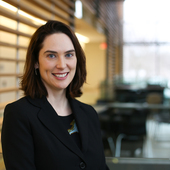
Heather Aldersey
Professor and Canada Research Chair (Disability Inclusive Development), Queen's University, Ontario
Less ![]()

Heather Blakey
PhD candidate in literary studies, The University of Western Australia
Heather Blakey is a scholar and writer in literary studies at the University of Western Australia. Her work examines intersections between technology, intimacy, and the environment in video games, literature, and virtual worlds. She is presently completing her doctoral thesis in literary studies. Heather has published scholarship on intimacy and aesthetics in video games, original poetry, and written arts coverage for various Australian media outlets. Heather co-hosts the game studies podcast Meaningful Play.
Less ![]()
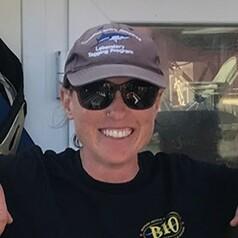
Heather Bowlby
Research Lead, Fisheries and Oceans Canada
My research focus over the previous 15 years has been on understanding changes in population dynamics for species of conservation concern. Questions with practical application to fisheries management or those that increase our understanding of changes in population status are my primary interests. I have concentrated on two general areas: first, on the development of methods to best generate data to support life history modeling or fisheries assessment; and second, on the integration of assessment methods or statistical techniques used outside of fisheries research to enable new ecological inference from historical data collections. Results from my research have been directly incorporated into multiple regional fisheries assessment programs (salmon, river herring, American eel, shark), and used to develop recovery strategies for species at risk (salmon, shark), for regional government departments, non-government organizations, and international RFMOs.
Less ![]()
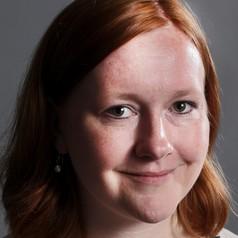
Heather Ellis
Vice-Chancellor's Fellow, School of Education, University of Sheffield
I am a cultural historian of knowledge, education and ideas. My first book, Generational Conflict and University Reform: Oxford in the Age of Revolution, won the 2014 Kevin Brehony Prize for the best first book in the history of education. My new book, Masculinity and Science in Britain, 1831-1918, was published by Palgrave Macmillan in 2017.
I am currently working on a study of the influence of classical scholarship and ancient natural philosophy on the emergence of the natural and physical sciences in the first half of the nineteenth century for OUP. I am a member of the Executive Committee of the History of Education Society and a Fellow of the Royal Historical Society.
Less ![]()

Heather Ewart
Postdoctoral Researcher, Evolutionary Biology, University of Manchester
I have a PhD in Behavioural Ecology from The University of Manchester, specialising in examining how anthropogenic disturbance and ecological complexity affect the behaviour, spatial ecology, and population dynamics across a range of species and environments. I have conducted non-invasive laboratory experiments on Testudines, and I am an experienced field researcher, having completed a funded field season in the Arctic researching the effect of changing snow patterns on the spatial behaviour and energetics of a highly specialised and threatened Arctic bird. I have also conducted four months of fieldwork in the tropical rainforests of Costa Rica, examining the behavioural ecology and energetics relative to ecological complexity and environmental disturbances of two sloth species. Finally, I received Turing funding to conduct a placement at the University of Sao Paulo investigating the impacts of anthropogenic disturbance and habitat fragmentation on threatened mammal communities of the Atlantic Forest.
Less ![]()

Heather Hendershot
Professor of Film and Media, Massachusetts Institute of Technology (MIT)
Heather Hendershot studies conservative media and political movements, film and television genres, and American film history. She has held fellowships at Vassar College, New York University, and Princeton University, and she has also been a Guggenheim fellow. She is the editor of Nickelodeon Nation (2004) and the author of Saturday Morning Censors: Television Regulation before the V-Chip (1998), Shaking the World for Jesus: Media and Conservative Evangelical Culture (2004), and What's Fair on the Air? Cold War Right-Wing Media and the Public Interest (2011). For five years she was the editor of Cinema Journal, the official publication of the Society for Cinema and Media Studies. During the 2014–2015 academic year, she was a fellow at the Radcliffe Institute for Advanced Study at Harvard University where she wrote Open to Debate: How William F. Buckley Put Liberal America on the Firing Line.
Less ![]()

Heather Kharouba
Associate Professor of Ecology, L’Université d’Ottawa/University of Ottawa
The Kharouba research group studies the causes and consequences of global change for insect and plant communities.
Less ![]()

Heather Laird
Senior Lecturer in the School of English and Digital Humanities, University College Cork
Less ![]()

Heather LaMarre
Associate Professor of Media and Communication, Temple University
Dr. LaMarre is a political communication expert with over 20 years experience in politics, media, and public affairs. As a social scientist, Dr. LaMarre's research examines the how different forms of political media affect attitudes, behaviors, and opinions. She is especially interested in understanding the role of media in shaping democracy and democratic outcomes.
Less ![]()

Heather Lanthorn
Assistant Director, Research and Programs at the Duke Global Health Innovation Center and Innovations in Healthcare, Duke University
Less ![]()

Heather Lench
Professor of Psychological and Brain Sciences, Texas A&M University
Dr. Heather C. Lench is a professor for the Texas A&M Department of Psychology and the Senior Associate Vice president for Faculty Affairs. On top of being an accomplished teacher, scholar, and mentor, Dr. Lench is the Director and Principle Investigator for the Emotion Science Lab.
The underlying premise of the Emotion Science Lab research is that emotional processes are the foundation of behavior and thought. We examine the role of affective reactions and emotions in how people think about the future and what they think will happen to them in the future. We are also investigating when and why particular emotions might improve functioning and decision-making.
Less ![]()
- Market Data




















